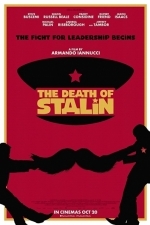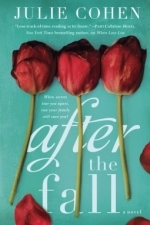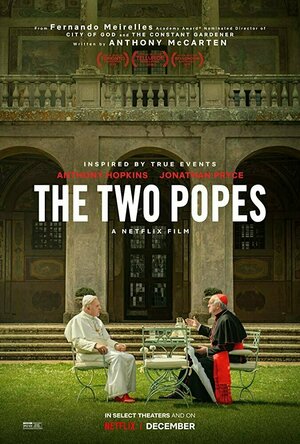
Lollipop - Gay Video Chat
Social Networking and Lifestyle
App
Meet men through gay video chat with Lollipop. Free and anonymous video gay dating. Lollipop is the...

Gymnastics Superstar
Games and Entertainment
App
~~> All your hard work has finally paid off - you’ve made it to the Olympics! Now’s your chance...

Futaba Classroom Games for Kids
Education and Games
App
Turn your iPad into a small Smart table with for up to four players at once. * Featured on...

Mending the Rift Box Set
Book
King's Conquest The only way for Prince Rin to save his kingdom is to marry a king and bear a...
M_M Fantasy Romance
Bob Mann (459 KP) rated The Death Of Stalin (2017) in Movies
Sep 29, 2021
Rupert Friend (centre) tries to deliver a eulogy to his father against winged opposition. With (from left to right) Michael Palin, Jeffrey Tambor, Steve Buscemi and Simon Russell Beale.
It should come as no surprise then that his new film – “The Death of Stalin” – follows that same pattern, but transposed into the anarchic and violent world of 1950’s Russia. Based on a French comic strip, the film tells the farcical goings on surrounding the last days of the great dictator in 1953. Stalin keeps distributing his “lists” of undesirables, most of who will meet unpleasant ends before the end of the night. But as Stalin suddenly shuffles off his mortal coil, the race is on among his fellow commissariat members as to who will ultimately succeed him.
Stalin…. Going… but not forgotten.
The constitution dictates that Georgy Malenkov (an excellently vacillating Jeffrey Tambor) secedes but, as a weak man, the job is clearly soon going to become vacant again and spy-chief Lavrentiy Beria (Simon Russell Beale) and Nikita Khrushchev (Steve Buscemi) are jostling for position. (No spoilers, but you’ll never guess who wins!). Colleagues including Molotov (Michael Palin) and Mikoyan (Paul Whitehouse) need to decide who to side with as the machinations around Stalin’s funeral become more and more desperate.
The film starts extremely strongly with the ever-excellent Paddy Considine (“Pride”) playing a Radio Russia producer tasked with recording a classical concert, featuring piano virtuoso Maria Yudina (Olga Kurylenko, “Quantum of Solace”). A definition of paranoia in action!
Great fingering. Olga Kurylenko as Yudina, with more than a hand in the way the evening’s events will unfold.
We then descend into the chaos of Stalin’s Russia, with mass torture and execution colouring the comedy from dark-grey to charcoal-black in turns. There is definitely comedy gold in there: Khrushchev’s translation of his drunken scribblings from the night before (of things that Stalin found funny and – more importantly – things he didn’t) being a high point for me. Stalin’s children Svetlana (Andrea Riseborough, “Nocturnal Animals”) and Vasily (Rupert Friend, “Homeland”) add knockabout humour to offset the darker elements, and army chief Georgy Zhukov (Jason Isaacs, “Harry Potter”) is a riot with a no-nonsense North-of-England accent.
Brass Eye: Jason Isaacs as the army chief from somewhere just north of Wigan.
Production values are universally excellent, with great locations, great sets and a screen populated with enough extras to make the crowd scenes all appear realistic.
Another broad Yorkshire accent: (the almost unknown) Adrian McLoughlin delivers an hysterical speaking voice as Stalin.
The film absolutely held my interest and was thorougly entertaining, but the comedy is just so dark in places it leaves you on edge throughout. The writing is also patchy at times, with some of the lines falling to the ground as heavily as the dispatched Gulag residents.
It’s not going to be for everyone, with significant violence and gruesome scenes, but go along with the black comic theme and this is a film that delivers rewards.
Bob Mann (459 KP) rated Captain Fantastic (2016) in Movies
Sep 29, 2021
“Captain Fantastic” starts with a dramatic hunting expedition introducing us to the unusual Cash family. Dad Ben (Viggo Mortensen) is bringing up his six kids – Bodevan, Kielyr, Vespyr, Rellian, Zaja and Nai – in the wilds of Washington state. Ben takes home-schooling to a completely new level, with intense study and examinations in quantum physics, philosophy and politics matched with a militaristic approach to weapons-training and physical fitness. Ben also teaches extreme self-sufficiency, most evident during a dramatic rock-climbing sequence.
Where is their mum in all of this? That would be a spoiler (so don’t watch the trailer either) but is central to the plot as the family board their old camper van – “Steve” – on a road trip back to the ‘real world’ and the children’s grandparents – the crusty and assertive Jack (a marvellous Frank Langella) and Abigail (Ann Dowd). What follows is filled with black humour, tragedy, not just one but two amazing funeral services and one of the most extraordinarily black and comic laying-to-rests ever seen on the big screen.
Viggo Mortensen is… well… fantastic in his portrayal, getting to run the full gamut of joy, grief, self-doubt, guilt and despair during the movie’s run-time. He’s clearly not going to win the Oscar on Sunday – surely Casey Affleck must be a slam-dunk for that – but this is a well-judged nomination by the Academy.
While the focus is on Mortensen, this shouldn’t overshadow the performances of some of the rest of the young cast, and I would specifically call out those of George MacKay and young Shree Crooks as the youngest of the kids. MacKay has been building up an impressive run of UK-based films with “Sunshine on Leith” and “Pride” but with this (and his key role in the recent TV mini-series “11.22.63”) he should see a break-through to more mainstream feature roles. In “Captain Fantastic” his socially-inept proposal to the delectable Claire (Erin Moriaty) is one of the high-points of the film. He is a name to watch, for sure.
And young Ms Crooks should be given a special honorary Oscar for the ability to learn such dense portions of script and deliver them so faultlessly!
The whole cast in fact was nominated for the Screen Actors Guild Award for Outstanding Performance by a Cast in a Motion Picture – one of my favourite award categories, but beaten by “Hidden Figures”. And it is that sort of film: a really great ensemble effort.
The film is written and directed by Matt Ross, only his second feature since 2012’s “28 Hotel Rooms” (which I was not aware of, but would now like to seek out). I thought it was terrific; deeply comedic; riveting from beginning to end; a roller-coaster of emotion and ultimately a feelgood classic on the value of family that I will remember fondly for a long time. Once again, the second film this week, that would have made me reconsider my “top films of 2016” list. I strongly recommend that you seek this out on download or DVD and give it a try.
Kristy H (1252 KP) rated After the Fall in Books
Dec 24, 2017
For Honor, it is an actual fall. An intelligent, proud woman, Honor raised her son, Stephen, alone. But Stephen married and then unexpectedly passed away, and Honor lives by herself. A fall down the stairs of her stately home lands her in the hospital with a broken hip and her pride deeply wounded. Suddenly, Honor is at the mercy of her former daughter-in-law, Jo, who was Stephen's wife, to help care for her.
For Jo, her fall may not be physical, but she feels as if she's always trying to catch up. Perpetually optimistic, Jo is constantly cheerful for those around her, but she cannot always hide her own doubts about where her life is headed, or if she's doing right by her three children. She's a busy mom to Lydia, Oscar, and Iris, and recently divorced from Oscar and Iris' father. She also fears she may be falling... for another man.
And for Lydia, she too has fallen in love. But she's also a teenager, who lost her father young, and she's dealing with the trials of school and exams. Lydia has a secret, as well: one that threatens her ability to blend in at school and home.
This book, oh this book. I adored this book so much. I fell for these characters (so sorry for that awful pun) hard. From the moment I started reading about feisty Honor, cheery Jo, and teenage Lydia, I loved them. I loved their problems, their sense of humor, and their family. This novel is beautifully written, achingly touching, and often laugh out loud funny.
It alternates between the points of view of our three main women: Honor, Jo, and Lydia. Honor and Jo have never been close, as Honor resented Jo marrying her son, and Jo felt intimidated by the intelligent and strong Honor. But after Honor's fall, she's forced to move in with Jo, her granddaughter Lydia, and Jo's young children with her second husband. The book slowly unfolds the details of how Stephen (Honor's son) passed away and the effect it had on all three women. The entire novel, really, is about little life details and how each they've impacted the three in various ways. In fact, you learn that while we are hearing these stories from three connected people, they really don't know each very well at all. Cohen captures so well how much they need each other, but can't admit it.
As such, there is a poignancy to the novel, as we watch the women navigate life and keep a variety of secrets and hidden sadness from each other. But unlike so many novels, where I want to just scream at the characters to communicate, or where it seems like the entire plot could have been avoided by someone simply talking to another character, this novel is real and true. For instance, Lydia's teen angst and the trials of her adolescence are also so beautifully (although heartbreakingly) portrayed.
It also captures the trials of having children so perfectly. There are some hilarious scenes as Jo navigates caring for her two younger children. Even better are the moments of prickly Honor interacting with young Iris and Oscar. You cannot help but laugh. There is a moment with Oscar and Honor that made me laugh and nearly cry; it was just so funny and touching. The novel is filled with many of these wonderful and witty moments.
I loved how these characters never failed to surprise me. Yes, there were some plot points you could see coming, but they didn't diminish my joy for the book or the depth of the characters. Nothing felt too cliche, and I remained captivated and intrigued. I felt a part of their story and lives. The novel really makes you think; its plot is not just "fluff."
By the end, I still loved all three so much, and my only disappointment was that the book ended.
Molly J (Cover To Cover Cafe) (106 KP) rated A Heart Revealed (Winds of Change, #2) in Books
Feb 27, 2019
Okay. Let me take just one moment to reflect on this book. *Reflecting* Okay. That’s better. WOW. I don’t even know where to begin. There is so much to say about this novel. Let me start off by saying if you’ve never read a Julie Lessman novel, stop what you are doing right now, and grab a copy. You won’t be sorry. The first novel I read by her was last September, entitled A Hope Undaunted, book 1 in this Winds Of Change series. I couldn’t believe how much I fell in love with her work! I was then lucky enough to win all three novels in her first series, The Daughters of Boston. Though they are still sitting on my shelf to be read, they are definitely calling my name and I can’t wait to go back and read them.
Now, on to the rest. In the first book in this series, I fell in love with Luke McGee. In this novel, I think I love Sean O’Connor even more. I really enjoy Snickers bars, so see, Julie? You could send SEAN my way, and I’d be forever blissfully happy. I LOVED his character. He was great in his role in A Hope Undaunted , but reading his story with the focus on him, was absolutely amazing. His past wasn’t perfect, and there were times when he went wild with anger, but he overcame that. There was one thing from his past that he holds inside though. No one, not even his nosy sisters, know. That is until, he finds himself drawn to his best friend Emma in a way that he couldn’t imagine. He opens up to her….with everything.
Emma Malloy. Bless her soul. She was a wonderful character, flawed and sweet, and wanting everyone close to her to be happy. Including Sean. When she finds her self falling in love with him, when she’s still married to the man who beat her 11 years ago, she’s determined to push him off on Rose Kelly…the woman who loves him. Trouble is, something happened to Sean and he won’t try with Rose.
Oh, I so want to go on and on….but I’m SO close to giving away the plot! I DO NOT want to do that! I want you to devour the book like I did and take the time to reflect on the wonderfulness of this novel. It’s stunning. It’s breath taking. It’s a roller coaster of emotions, from happiness, to sadness, to anger, to pride, to passion. It has a WHOPPER of a twist and an ending that will leave you smiling and tears running down your face. Not to mention I LOVED Casey Herringshaw and Michelle Tuller’s characters 😉 *grins*!
I highly suggest that you grab a copy of this novel NOW. It’s 5 Books worthy, two thumbs up, hats off, a home run, a winner, a best seller……what ever you want to call it’s that. Julie Lessman really has a way to make ME feel a part of the heart of the story. She speaks to me through the words of her characters, and really brings me closer to God each time. She is by far my absolute FAVORITE Christian novelist and I will NEVER part with her books. They are forever on myself for me to read and reread, and reflect on each time. I am looking forward to book three in this series, Steven O’Connor’s story. Sweet angels in Heaven, though, Julie, do you have to make us wait a whole YEAR!?!? *Sigh* Oh well. All the more for me to savor that one upon it’s release.
Bob Mann (459 KP) rated The Two Popes (2019) in Movies
Jan 26, 2020 (Updated Jan 26, 2020)
All that changed in 2013 when Pope Benedict XVI resigned, the first pope to voluntarily do so since Pope Celestine V in 1294. (Pope Gregory XII also resigned in 1415, but he was effectively forced to).
This movie tells the story of that curious situation, when Cardinal Jorge Bergoglio (played by Jonathan Pryce) ended up as Pope Francis while Benedict (Anthony Hopkins) was still alive. The official reason for the pope's resignation appears to have been his advanced age. But the film paints a rather different picture.
The movie starts back in 2005 as we enter the papal conclave. Benedict (Cardinal Ratzinger, as was) is the highly-political German cardinal who desperately wants the papacy; Bergoglio is the highly respected Argentinian cardinal who doesn't seek the office but might have it thrust upon him. (Clearly, when the white smoke clears, history has dictated the outcome).
But flash forward to 2013 and Bergoglio will get another bite of the cherry. Is he worthy of the role? Through flashbacks we return to Perón's unsettling rule over Argentina and the events that made the man.
The two stars are simply outstanding together, and it's no surprise at all that both have been nominated in the Oscar acting categories. They are almost joint leads. But - perhaps to give the film its best awards-season shot - Pryce is down for Best Actor and Hopkins is down for Best Supporting Actor.
Anthony Hopkins in particular for me shone with the brilliant quietness and subtle facial movements that are the mark of a truly confident actor. Less is more.
I was enjoying this movie enormously up until we flashed back to the Argentinian sub-plot. Set in the time of Perón's "Dirty War" when a huge number of people - estimates range from 9,000 to 30,000 - simply went "missing". There's nothing wrong with this sequence of the film. For example, a reunion of Bergoglio with a persecuted priest, Father Jalics (Lisandro Fiks) - is brilliantly and movingly done. It's just that for me it seemed so disjointed. It was jarring to switch from this Evita-era drama to the gentle drama of the papal plot.
If the movie had been 30 minutes shorter and focused on the mental struggles of Benedict I would have preferred it. Curiously - we don't really get to fully understand his divergence from the faith. Bergoglio gets no end of back-story. But Ratzinger's is probably just as interesting, but not explored.
This is still a really fine movie and will appeal to older folks who like a story rich with character acting and not heavy on the action or special effects. The director is Fernando Meirelles (who interestingly directed the Rio Olympics opening ceremony!) and it's written by Anthony McCarten, the man behind the screenplays for "The Theory of Everything", "Darkest Hour" and "Bohemian Rhapsody".
You may still be able to find this in selected cinemas (e.g. Curzon) but it is also streaming on Netflix, which is where I had to watch it.
(For the full graphical review, please check out One Mann's Movies at https://bob-the-movie-man.com/2020/01/26/one-manns-movies-film-review-the-two-popes-2019/ ).

3D Classic Literature Collection
Book and Entertainment
App
• Featured by Apple in "Back to School" in the App Store (US/UK and many others...) • Featured...




